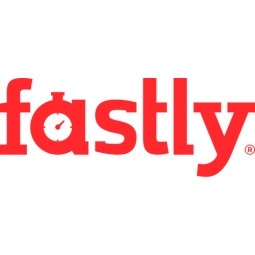Download PDF
Fastly's CDN Solution: A Game Changer for api.video's Global Expansion
Technology Category
- Infrastructure as a Service (IaaS) - Cloud Middleware & Microservices
- Sensors - Camera / Video Systems
Applicable Industries
- Cement
- Transportation
Applicable Functions
- Logistics & Transportation
- Sales & Marketing
Use Cases
- Construction Management
- Last Mile Delivery
Services
- Cloud Planning, Design & Implementation Services
- System Integration
The Challenge
api.video, a European-based company that provides video encoding, delivery, and hosting services, faced significant challenges in scaling its video delivery via its Content Delivery Network (CDN). The company was using a niche CDN provider, CDNetworks, for its two data centers in Canada and Europe. However, the provider was unable to meet the growing demands of api.video. The company faced issues with poor cache performance under full load, especially during live streaming events. This issue was so severe that it restricted product access and hindered the company's scaling efforts. Additionally, the CDN provider only made logs accessible once per day, which made quick mitigation of any abuse impossible. The company also faced issues with opaque routing within its old CDN, which was suboptimal and offered no control. Furthermore, api.video wanted to leverage future features that the previous CDN provider would not allow due to lacking features or mandated policies. These features included supporting custom domains, domain referrer restrictions, the ability to control request log data, and support for the Cloud Data Management Capabilities (CDMC) framework and built-in optimizations for video use cases.
About The Customer
api.video is a European-based company that helps businesses easily encode, deliver, and host videos. The company provides an end-to-end service that covers encoding, delivery, and storage, making it easy for businesses to add videos to a website, app, CMS, or software. api.video serves a wide range of customers, including eLearning providers, C-marketplaces, and social networks. The company is ambitious and prefers to run its own infrastructure for greater flexibility and cost management. After securing Series A funding in summer 2022, api.video aimed to extend its reach in key markets in Europe, the US, and beyond.
The Solution
To overcome these challenges, api.video initiated a robust benchmarking process to find a CDN with the technical capacity and global clout essential to drive its growth strategy. The company reached out to six potential vendors and shortlisted three providers: Fastly CDN, Cloudflare, and Akamai. The benchmarking process covered features, cost, and performance. After a thorough evaluation, Fastly CDN emerged as the clear winner in all key criteria. Fastly CDN offered native integration with Kafka, efficient caching invalidation, support for custom domain features, and access to real-time data. These features were crucial for api.video as they were building a new Kafka-based analytics pipeline. The migration from CDNetworks to Fastly CDN was smooth, with no customer service interruption, no drop of VOD or live stream, and no spike in errors. Fastly CDN also allowed api.video to configure private video features and shielding features in the context of a worldwide origin infrastructure.
Operational Impact
Quantitative Benefit
Related Case Studies.

Case Study
System 800xA at Indian Cement Plants
Chettinad Cement recognized that further efficiencies could be achieved in its cement manufacturing process. It looked to investing in comprehensive operational and control technologies to manage and derive productivity and energy efficiency gains from the assets on Line 2, their second plant in India.

Case Study
Airport SCADA Systems Improve Service Levels
Modern airports are one of the busiest environments on Earth and rely on process automation equipment to ensure service operators achieve their KPIs. Increasingly airport SCADA systems are being used to control all aspects of the operation and associated facilities. This is because unplanned system downtime can cost dearly, both in terms of reduced revenues and the associated loss of customer satisfaction due to inevitable travel inconvenience and disruption.

Case Study
IoT-based Fleet Intelligence Innovation
Speed to market is precious for DRVR, a rapidly growing start-up company. With a business model dependent on reliable mobile data, managers were spending their lives trying to negotiate data roaming deals with mobile network operators in different countries. And, even then, service quality was a constant concern.

Case Study
Digitize Railway with Deutsche Bahn
To reduce maintenance costs and delay-causing failures for Deutsche Bahn. They need manual measurements by a position measurement system based on custom-made MEMS sensor clusters, which allow autonomous and continuous monitoring with wireless data transmission and long battery. They were looking for data pre-processing solution in the sensor and machine learning algorithms in the cloud so as to detect critical wear.

Case Study
Cold Chain Transportation and Refrigerated Fleet Management System
1) Create a digital connected transportation solution to retrofit cold chain trailers with real-time tracking and controls. 2) Prevent multi-million dollar losses due to theft or spoilage. 3) Deliver a digital chain-of-custody solution for door to door load monitoring and security. 4) Provide a trusted multi-fleet solution in a single application with granular data and access controls.

Case Study
Vehicle Fleet Analytics
Organizations frequently implement a maintenance strategy for their fleets of vehicles using a combination of time and usage based maintenance schedules. While effective as a whole, time and usage based schedules do not take into account driving patterns, environmental factors, and sensors currently deployed within the vehicle measuring crank voltage, ignition voltage, and acceleration, all of which have a significant influence on the overall health of the vehicle.In a typical fleet, a large percentage of road calls are related to electrical failure, with battery failure being a common cause. Battery failures result in unmet service agreement levels and costly re-adjustment of scheduled to provide replacement vehicles. To reduce the impact of unplanned maintenance, the transportation logistics company was interested in a trial of C3 Vehicle Fleet Analytics.





